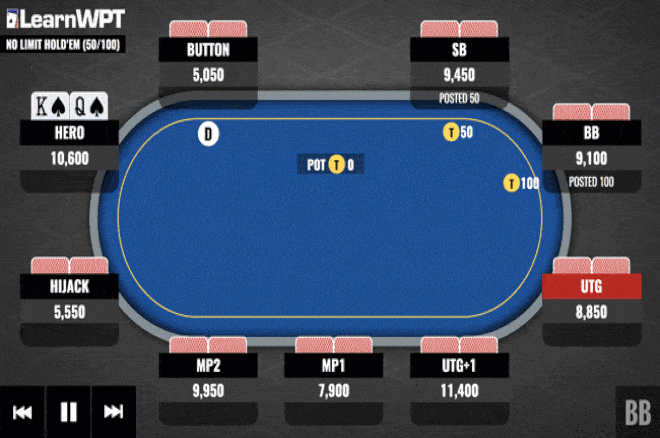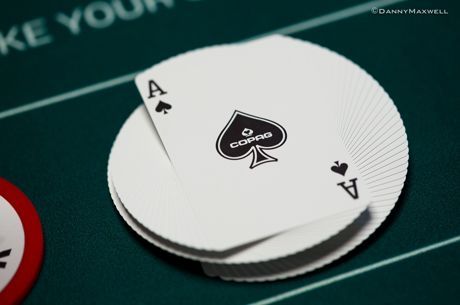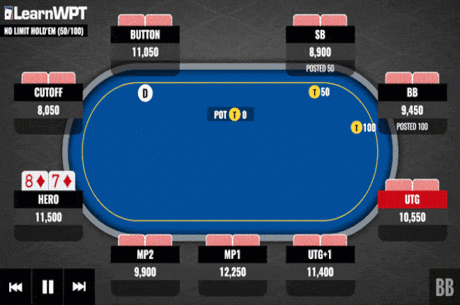How to Play King-Queen Suited Versus a Limper

DECISION POINT: In a no-limit hold'em tournament, it folds to the hijack who calls. You are in the cutoff with K?Q? and the action is on you.
PRO ANSWER: Whenever a player has limped into the pot in front of us, we can ask ourselves the question of whether limping behind will be profitable.
Typically with speculative hands, such as in this case with our suited connectors, we can call after a limper as long as stacks are 20 or more big blinds deep. So calling would be profitable here.
However, king-queen suited is also a legitimately strong Broadway hand with high card value. We can play this hand aggressively by raising with it and isolating this limper. Which option will be more profitable?
To answer this question, we want to look at the hijack's hand range. When our opponent's hand range is weak and wide, we should tend to play our hand more aggressively. When the limper's hand range is narrower and stronger, there is more value in playing our hand passively by calling.
Since our opponent limped into the pot from the hijack seat, we can assume the hijack's hand range is wide and weak by default. This makes raising with king-queen suited a more profitable play than simply calling.
Raising gives us the ability to win this pot uncontested preflop or on the flop with a continuation bet.
Raising is the best play.
LearnWPT is a poker training site dedicated to transforming the poker games of rank beginners, skilled amateurs, and aspiring professionals. Offering both Live Workshops and Online Training, is a one-stop shop for poker education, designed to provide all the tools a player needs to become a winner. Visit LearnWPT.com today and get 2 Free Strategy Episodes that will immediately impact how you play. LearnWPT.com - Think Like a Pro!









